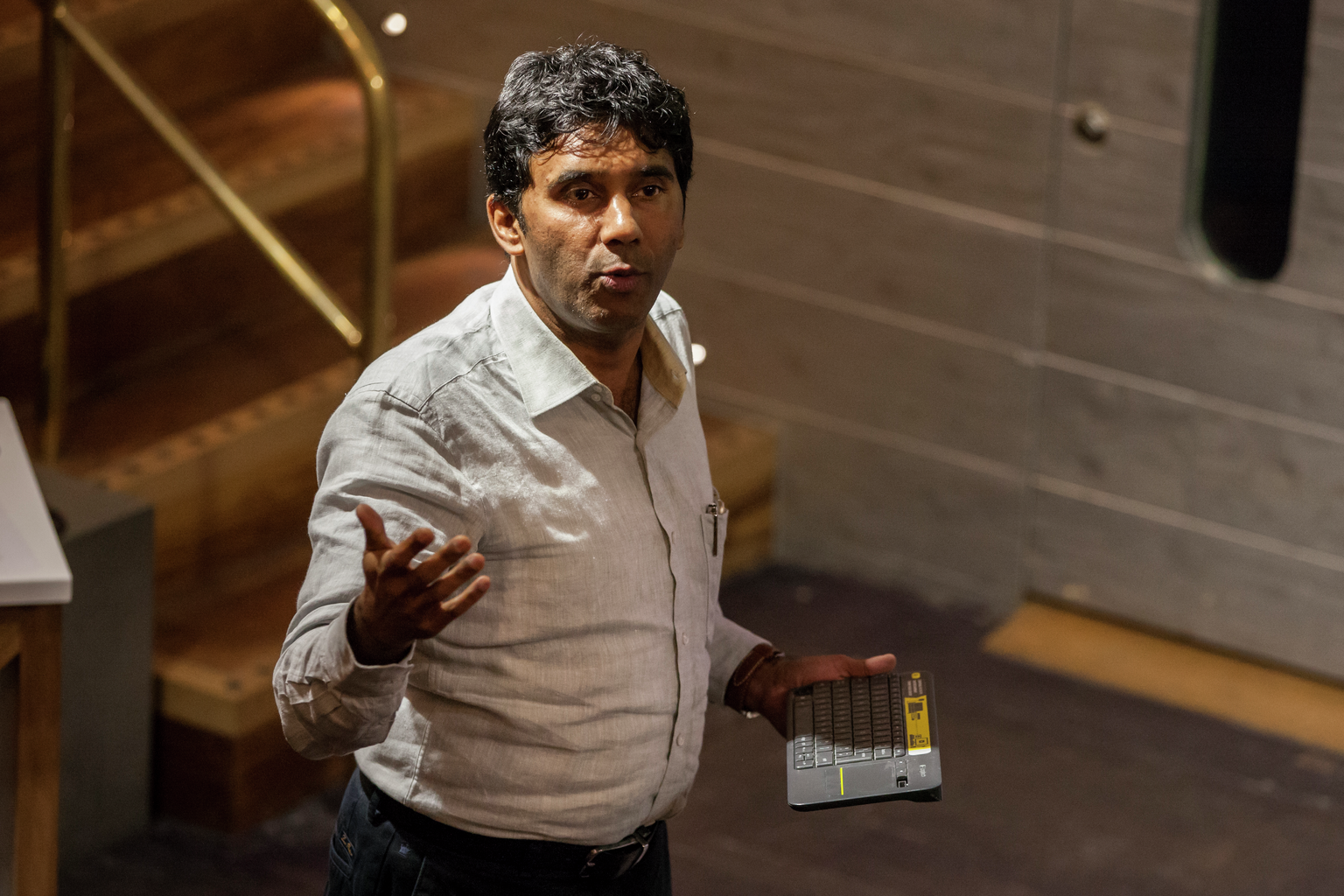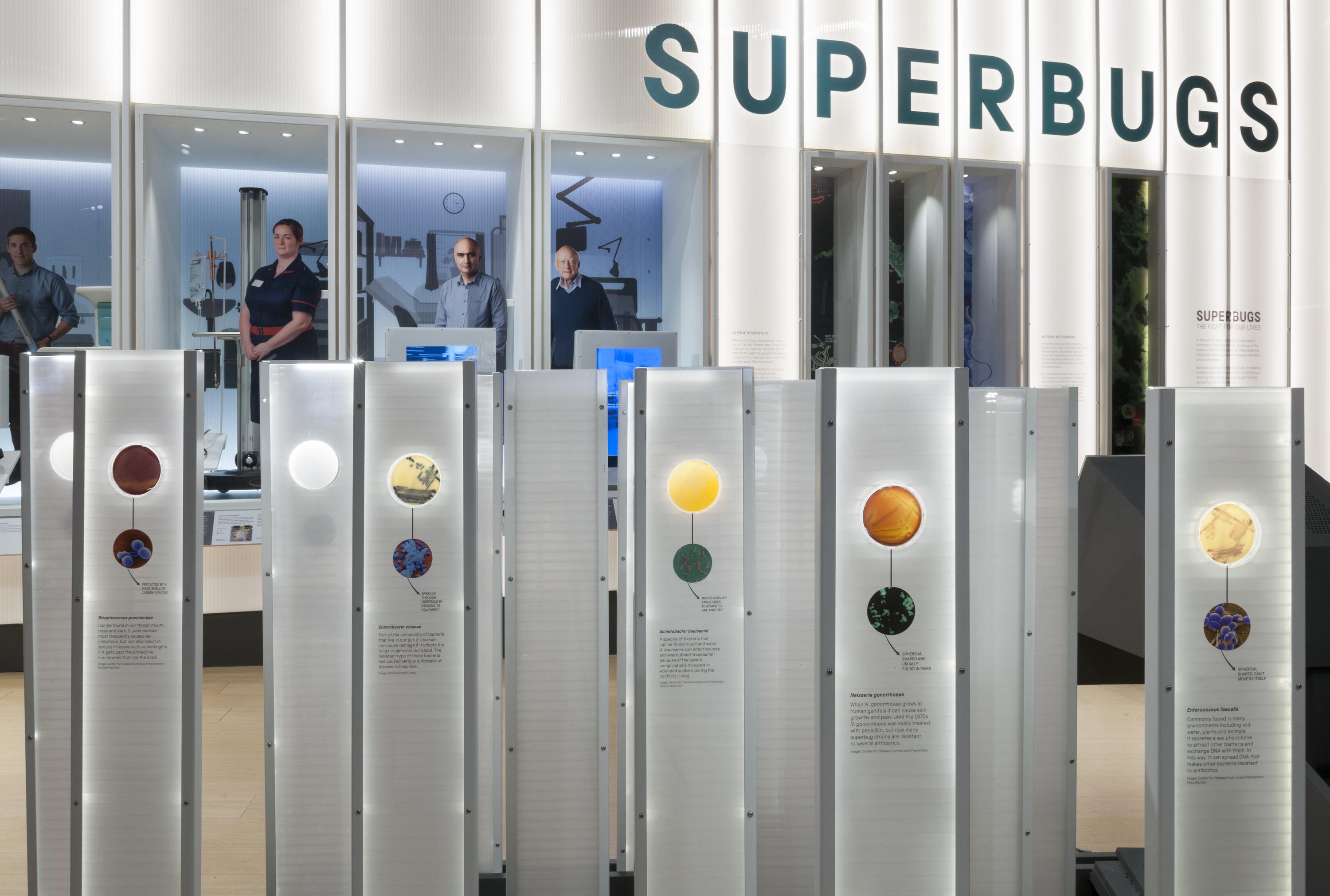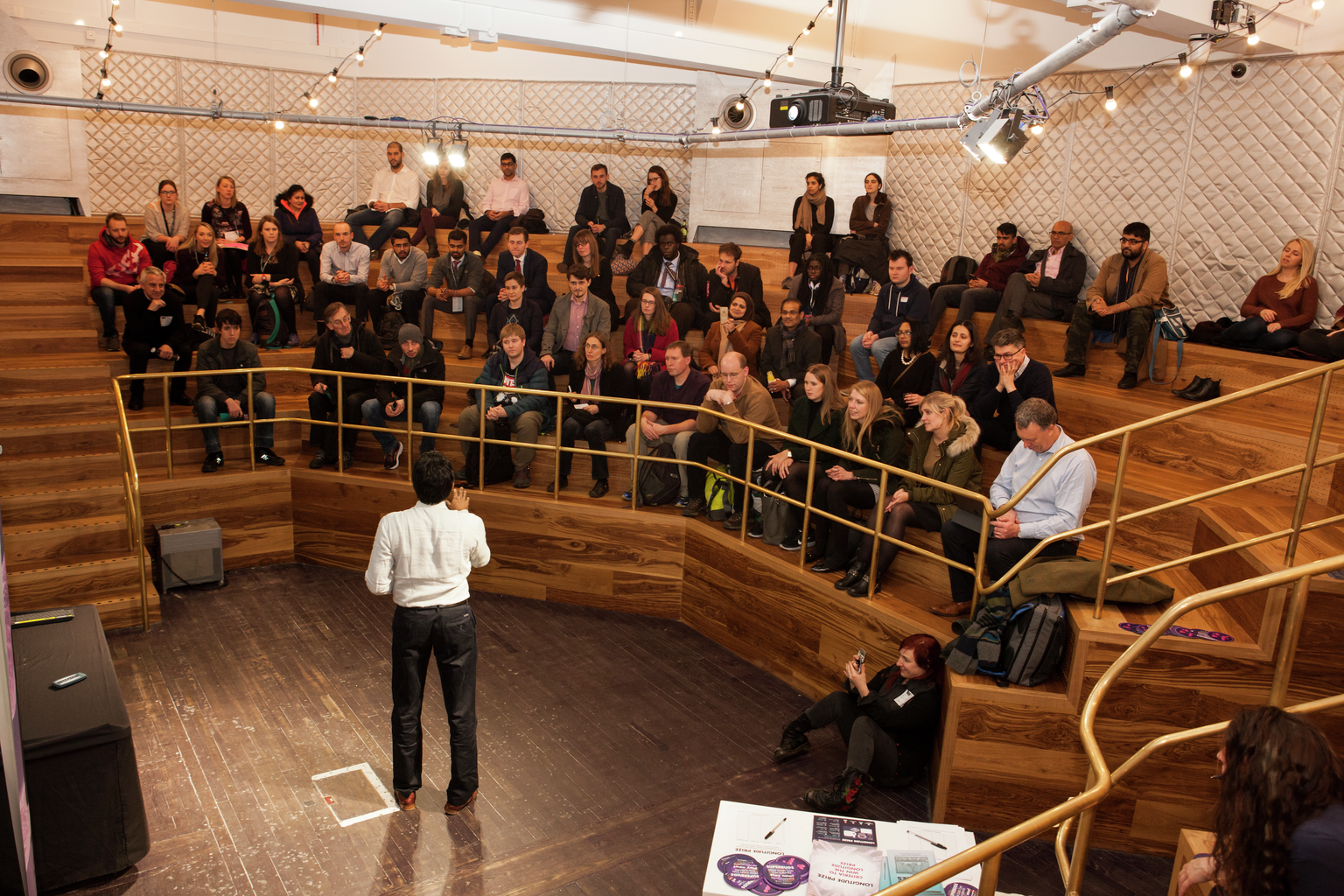Antimicrobial resistance is one of the biggest challenges the world faces today. Left unchecked it could return modern medicine to the dark ages.
India, having some of the highest antimicrobial resistance rates in the world, is the focal point for an action plan in developing countries, known as the Chennai Declaration and in some ways is leading the world.
I have never seen such passion, dedication and fury at the problem of superbugs until we had Dr Abdul Ghafur, a coordinator of the landmark Declaration, speak at the Science Museum Illuminating India Lates.

Dr Ghafur is also a consultant in infectious diseases and clinical microbiology at the Apollo Hospitals in India. He told me how, after working long hours at the hospital, he then works late into the evening on his efforts towards reducing antibiotic resistance – every day of every week.
He outlined why we have a crisis:
- Pharmaceutical companies are no longer interested in investing in new antibiotic discovery
- Patient pressure to be given antibiotics without knowing if they are needed
- Healthcare worker hand hygiene is only at 40% worldwide
- Animals are fed with antibiotics to grow faster which cross-contaminates into the human world
Dr Ghafur is a panel judge and one of our big supporters at the Longitude Prize, which is spurring teams worldwide to compete to invent an affordable, accurate, fast and easy-to-use test for bacterial infections that will allow health professionals to administer the right antibiotics at the right time.
After touring the museum’s Superbugs exhibition, it became clear that while no country is immune to the spread of superbugs, he is glimpsing problems that will be increasingly prevalent.

In northern latitudes we may consider MRSA, the Gram-positive bacteria, to be worrying, but for India the dangerous and often deadly Gram-negative resistance is getting out of hand. While there are still potential antibiotics to treat MRSA, there is not a single one that can treat some of these patients with Gram-negative infections in the region.
Colistin, an older antibiotic with harsh or significant side effects now commonly used for animal growth, until recently has been the holy grail in India’s medical community as a last resort for patients when all other antibiotics stop working. Since it’s consistent use in farming, colistin resistance is spreading to communities through food and soil. Dr. Ghafur exclaimed that it is urgent we stop colistin use in farming to save this valuable drug from becoming completely defunct.
Socio-economic disparity in India – which has a population of 1.3 billion, only 75,000 hospitals, one million doctors and half a million pharmacies – makes tackling antimicrobial resistance very complex. Resistance does not only spread in hospitals and clinics in India, but through everyday communities, making it extremely difficult to control.
Although previously unrecognised as much of a political issue, antibiotic resistance is not in the hands of only scientists anymore in India. Doctors, scientists and researchers were not aware of the seriousness of the problem. Now that it absolutely needs to be taken very seriously, political leadership has needed to step up.
A recent public statement by Indian Prime Minister Narendra Modi, on the importance of rational antibiotic use, is indeed a very positive development. The Swatch Bharath Abhiyan Clean India campaign run by the Indian Government will also provide serious momentum to the tackling antibiotic resistance.
Globally, more than ever, politicians are engaging with the issue and Dr. Ghafur has seen a major shift in attitudes. However, in India, where there are 29 states and 7 union territories, often ruled by different political parties, organising a way to tackle antibiotic resistance as a socio-political crisis overall is complicated and there is no immediate solution.
The Chennai Declaration has not modified behaviour overall despite trying to decrease the dispensation of antibiotics over the counter, but it has made the public more aware, spread the word and has inspired other people to do the same. I think Dr Ghafur’s examples from India showed that knowledge is at the base of power for the communities aiming to tackle resistance rates.
India has a long way to go before it can reduce antibiotic resistance, but Dr Ghafur remains hopeful. Kerala will soon be the first state to implement an Antimicrobial Resistant (AMR) Action Plan with the aim to convince other states to make similar efforts to reduce resistance: yes, some politicians see the problems and are actively working towards a better, less antibiotic-fueled future.
This is why Dr Ghafur works such long hours. He can see the socio-political perspectives shifting, which gives him hope, and he has proven his talent, even just by successfully converting those who were in his audience at the Science Museum Lates to make efforts in reducing antibiotic resistance a priority.

He was delighted to take part in the event. “The lecture hall was packed with a highly enthusiastic and vibrant audience. During my talk I could see a change. The public has indeed realised that antibiotic resistance is a public health crisis!“ Dr Ghafur said after his talk.
As people were filing out of the lecture theatre, a young man approach me, with a curious, almost shy tone he said “I’m 22 and a security guard with no degree… Am I too old and undereducated now to be a part of this movement?”
“Of course not,” I said.
“You don’t need to go to medical school or even to India to help make a change. We need advocates, educators and stewards in UK communities too, as this is a global issue – we just don’t see it as widely or clearly yet here.”
I guess Dr Ghafur’s positive and passionate energy inspired me too. It’s infectious.
Visit our free exhibition Superbugs: The Fight For Our Lives to see real bacteria and discover more about the global threat of antibiotic resistance. Open until Spring 2019.